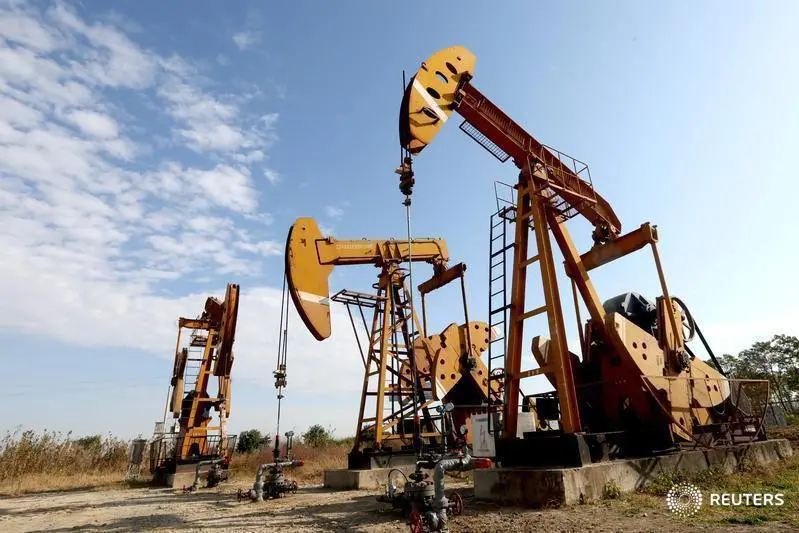PHOTO
LONDON - Portfolio investors raced to build bullish positions in petroleum at the end of January amid signs the business cycle slowdown is coming to an end and fears about attacks on tankers near southwestern Arabia.
Hedge funds and other money managers purchased the equivalent of 97 million barrels in the six most important petroleum futures and options contracts over the seven days ending on Jan. 30.
Fund managers have purchased petroleum in five of the most recent seven weeks increasing their position by a total of 296 million barrels since Dec. 12.
The most recent week saw most buying in crude (+71 million barrels) but extending to refined products as well (+26 million barrels).
There were purchases of Brent (+53 million barrels), NYMEX and ICE WTI (+18 million barrels), European gas oil (+17 million), U.S. diesel (+7 million) and U.S. gasoline (+1 million).
Two-thirds of the buying was to initiate new bullish long positions (+67 million barrels) rather than to buy back previous bearish short ones (+30 million).
Chartbook: https://tmsnrt.rs/3Stl95P
Inventory depletion around the NYMEX delivery point at Cushing in Oklahoma continued to draw buying in NYMEX and ICE WTI (at least until the BP refinery at Whiting was shut down by a site-wide electricity failure).
Brent and European gas oil saw buying after attacks on shipping effectively closed the southern Red Sea and Gulf of Aden to tanker traffic associated with Western Europe and North America.
Naval and air operations by the United States and the United Kingdom against the Houthis, as well as convoying by warships, had not yet re-opened the waterway to vessels at risk.
Re-directing east-west crude and diesel trade on the much longer route around Africa will absorb inventories and temporarily tighten supplies to Europe.
But the impact of re-routing on supplies, inventories and prices is a one-time event and likely to be relatively modest.
Since the cut-off for last week's position reports, prices have drifted lower as traders anticipated the waterway closure was fully priced in and the probability of early interest rate cuts diminished.
Until then, hedge fund managers had become neutral or even moderately bullish compared with the extremely bearish views that prevailed in the middle of December.
Funds held a total position of 503 million barrels across the six major contracts (36th percentile for all weeks since 2013) up from just 207 million barrels (1st percentile) on Dec. 12.
In crude, the position had risen to 379 million barrels (26th percentile) up from a record low of just 128 million barrels, according to exchange and regulatory records.
In Brent, the position had been increased to a mildly bullish 261 million barrels (58th percentile) from a very bearish 98 million (5th percentile).
U.S. NATURAL GAS
Investors sold gas futures and options in despair as milder weather across North Europe and Northwest Europe crushed the outlook for gas consumption once again.
Hedge funds and other money managers sold the equivalent of 298 billion cubic feet (bcf) in the two main futures and options contracts linked to prices at Henry Hub in Louisiana.
Sales over the two most recent weeks have totalled 895 bcf, reversing more than half of the 1,409 bcf purchased over the previous five weeks.
As a result, fund managers held a net short position of 484 bcf (19th percentile) down from a net long position of 410 bcf (42nd percentile) on Jan. 16.
This is the third time since the middle of 2023 fund managers have tried to build a bullish position only to be forced to retreat as inventories remained above average.
After a cold start to January across North America and Northwest Europe, temperatures have turned milder than usual, suppressing gas and electricity consumption.
Front-month gas futures prices have been forced down towards $2 per million British thermal units from well over $3 at the middle of January.
Mild weather has postponed the normalisation of inventories and ensured prices need to stay lower for longer to force a further slowdown in drilling and production.
John Kemp is a Reuters market analyst. The views expressed are his own. Follow his commentary on X https://twitter.com/JKempEnergy
(Editing by David Evans)





















